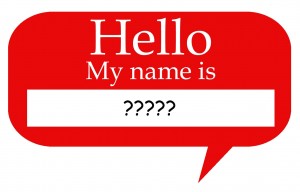Blog
How Do You Compare In the Marketplace? (Marketing Plan #2)

Originally published on ACFW Colorado’s The Inkwell Blog.
Last week we discussed the importance of knowing who you are as an author. Just as important is understanding the competitive landscape, which means reading. A lot.
I know I’m risking hate mail here, because this is the topic that generates the most pushback from authors. “I don’t like to absorb someone else’s style while I’m writing my drafts.” That’s a perfectly valid point. Read in between drafts, before and after a project is complete, whatever works for your writing process.
But in order to effectively market your work, you must read in your genre.
Why? There are plenty of good reasons that involve mastering your craft and learning the conventions of a particular genre. Each genre has them, and chances are, you chose it because you enjoy reading those types of books. If you’ve been at it for a while, you’ve most likely internalized some of those rules.
That’s a completely different concern from why you must read for research and marketing purposes. Our discussion last week was about determining what makes you and your story unique. By definition, unique means “the only one like it.” If you don’t read, you don’t know whether you’re unique or not.
So let’s go through what you should thinking about as you read through the books in your genre that have been published in the last eighteen months (understanding of course, that it reflects what has been happening in the industry two years prior to the publication date.)
1.) How does is my voice different from other authors writing in the genre? What makes me unique? (Or as we like to say in sales and marketing, what is my Unique Selling Proposition? Why should someone choose my books over another author’s books? What makes me special?)
2.) How is my voice similar to other authors writing in the genre? Do I write concise, snappy contemporary sentences, full of funny internal monologue? Do I write elegant, complex prose full of lavish descriptions? Who else writing in my genre has a similar style? This can give you a good feel for the marketability of your work and possible editors to target prior to publication. More importantly, the readers of those authors to whom your style is similar is your target audience. More about that next week.
3.) What kind of stories are told most often? It’s a fine line between popular and over-saturated. If you’re writing a romance set on a ranch in Texas, you need to be able to identify what makes your book both similar and different from those other books. What do those stories all have in common that drew the editors and readers? What new take are you offering on that setting, situation, or story?
4.) How do authors handle sensitive topics like politics, religion, sexuality, violence, social issues? This is especially important if you’re pushing the boundaries on what’s typically published in the CBA. How far have authors been allowed to go on these topics by their respective editors? How have they handled sensitive situations? Again, this is valuable information when you’re still writing your novel, but even when you’re marketing a book under contract, it can give you an idea of whether you should be identifying yourself as traditional, edgy, or crossover.
This week’s action items: Make a list of books in your genre that have been published in the last 18 months that seem most similar to your story. Buy them, borrow them, or request them from your local library. (Colorado has a particularly good inter-library loan system through Prospector, so make use of it!) If you already have favorite books in the genre, analyze them according to the four points above.
Next week: Analyzing the competition’s marketing presence.
How To Define Yourself As An Author (Marketing Plan #1)
 Originally published in ACFW Colorado’s The Inkwell Blog.
Originally published in ACFW Colorado’s The Inkwell Blog.
Beginning this week, I will be taking you through the steps of writing a marketing plan. This is different from a plan prepared by your publisher or publicist, since it focuses on steps that you as an author can easily take to promote your own work. There are as many different formats as there are authors, and you can feel free to adjust for your needs. This just happens to be one with which I’m comfortable, and I’ve used it to successfully market everything from medical products to yoga classes to business books.
The first step is to define yourself and your product. As authors, we’re not just selling our books, we’re also marketing ourselves. This begins with your mission statement and your tag line.
1. What is your mission statement?
A mission statement is your purpose in writing. What do you hope to accomplish? What do you wish your readers to get out of your work? You’ll be the only one to see this, so don’t worry about polishing it. This is just to help you guide your thoughts as you define your work in the marketplace.
Here’s my mission statement for my fantasy fiction: To portray God’s unceasing faithfulness amidst life’s most difficult trials.
If I wrote a non-fiction book on marketing, my mission statement might sound like:To overcome the stigma of marketing in the Christian writing community and enable authors to effectively reach their widest possible audience.
2. Come up with a tag line.
Yes, this is a tricky one, and admittedly, an optional one. If you’re going to use a tag line, it needs to encompass the general feeling of your mission statement, as well as your genre. It should be specific enough to give readers a flavor of your personality while not being so specific that you are locked into always writing on one particular topic (for example, romances set in Austin, Texas). Here are a few memorable ones used by published authors.
Romance, suspense, and hope. (Colleen Coble)
Where adventure comes to life. (Jill Williamson)
Stories for the hero in all of us. (Sharon Hinck)
Each tag line gives a clue to both the type of book the author writes and a sense of their style. Colleen Coble’s tagline tells us clearly she writes romantic suspense with an inspirational message. Jill Williamson’s says there’s an adventure element to all her works, and the tone hints at the fact they’re written for a younger audience. Sharon Hinck’s motto tells us we’ll receive stories about ordinary people doing extraordinary things.
It’s worth noting that many established, well-known authors do not use tag lines. Others have waited to use them until late in their careers.
3.Define your genre.
I know, how could you possibly fit that contemporary-fiction-suspense-modern-historical novel you’ve been writing into a single genre? You’ve got to try. Until the bookstore devotes shelf space to a time-travel-chick lit-horror category, people are going to look for your books in a specific category.
One way to determine your genre is to think about what would most hurt your story if you removed it. Does the plot fall apart if you remove the love story? It might be a romance. Does it lose its teeth when you take out the murder? Then it might be suspense/mystery.
Once you’re finished with these three steps, you should have a better idea of who you are as an author and what defines your book.
This week’s action item: Write your mission statement and tag line (if desired). Define your genre.
Next week: The Competitive Landscape– how do you fit into the existing marketplace?
Marketing and the Great Commission
Originally published by ACFW Colorado’s The Inkwell Blog.
There’s a persistent feeling among Christian authors that marketing is somehow dirty. We write stories we hope will touch others, bring them comfort, challenge them. We may even feel that we were called to write with a Christian worldview or to bring others to Christ.
But marketing our writing? That’s where the enthusiasm over our calling fizzles out.
Personally, I write inspirational fiction because I can reach far more people in print than I can in my day to day life. Sure, I come in contact with dozens of people every day, and I may even share my faith with some of them, should the opportunity arise. As a writer, though, I can reach hundreds, thousands, even hundreds of thousands of people. I can touch far more lives through the written word than I ever could in my day to day life.
So why wouldn’t I want to get my message to the greatest number of readers possible? If I have something of value to share, one that could potentially impact lives, isn’t it wrong to restrict that message to shoppers who might happen across a display in a Christian bookstore or see it on a list on Amazon?
As Christian writers, it is our duty to market our work. Not for own glory or our own pocketbook (though let’s face it, we’d all like to jump up and down over a good royalty statement), but because we’re doing God’s work. If that is true, we shouldn’t shy away from spreading that message to the furthest reaches.
Jesus said, “Therefore, go and make disciples of all the nations…” (Matthew 28:19). He didn’t say, “Go and make disciples of only readers who shop at Christianbooks.com.” Those of us who don’t explicitly write salvation messages aren’t off the hook either. Portraying characters with a Christian faith, or even just a moral viewpoint in today’s “anything goes” culture, can have an impact of which we may never be fully aware.
Over the next several months, I will be conducting a marketing boot camp to make sense of all those buzzwords and help you think about marketing your work in a consistent and professional manner. At the end of each week’s post, I will give you an action item to complete or a question to answer before next week’s post. By the end of the series, you should have a solid framework for creating your own marketing plan.
This week’s action item: Why do you write inspirational fiction? What message has God called you to deliver?
Next week: Defining yourself as an author
